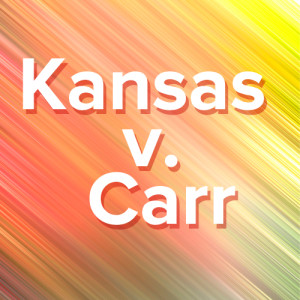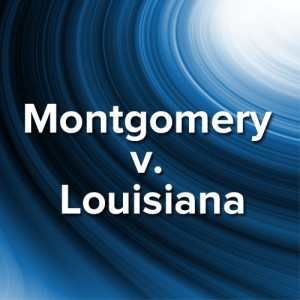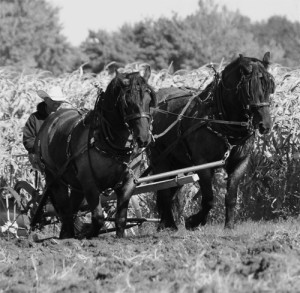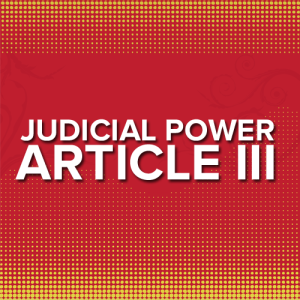Menu
Hot-Topics
February 5, 2026 | SCOTUS Decision in Bowe v. United States Is First of the 2026 Term
Category: Supreme Court Decisions

The U.S. Supreme Court’s Case Docket For February
The U.S. Supreme Court returns from recess on February 22, 2016 without Justice Antonin Scalia. Below is a brief summary of the Supreme Court’s Case Docket that the Eight justices will consider this month. Kingdomware Technologies, In...

Lochner v. New York: Liberty of Contract
In Lochner v. New York, 198 U.S. 45 (1905), the U.S. Supreme Court struck down a New York law that established maximum working hours for bakers. According to the majority, the right to buy and sell labor was a liberty interest protected under the...

Kansas v. Carr: Capital Sentencing Under the Eighth Amendment
In Kansas v. Carr, 577 U. S. ____ (2016), the U.S. Supreme Court addressed the constitutionality of jury instructions used in two Kansas capital murder cases. The justices ruled that the Eighth Amendment does not mandate that courts instruct ...

Supreme Court Upholds Antitrust Act in Northern Securities Co. v. United States
In Northern Securities Co. v. United States, 193 U.S. 197 (1904), the U.S. Supreme Court held that a holding company formed to create a railroad monopoly violated the Sherman Antitrust Law. The government’s victory in the case helped solidify P...

Montgomery v. Louisiana: Juvenile Sentencing Decision Is Retroactive
In Montgomery v. Louisiana, 577 U. S. ____ (2016), the U.S. Supreme Court addressed how state courts should apply its decision in Miller v. Alabama, in which the Court held that the Eighth Amendment prohibits a sentencing scheme that requires life in...

Pollock v. Farmers Loan & Trust Co.: Federal Income Tax Violated the Constitution
In Pollock v. Farmers Loan & Trust Co., 157 U.S. 429 (1895), the U.S. Supreme Court held that federal taxes on interest, dividends and rents violated Article 1 of the U.S. Constitution. In 1913, the adoption of the Sixteenth Amendment nullifi...

Campbell-Ewald Co. v. Gomez: Class Actions and Article III
In Campbell-Ewald Co. v. Gomez, 577 U. S. ____ (2016), the U.S. Supreme Court considered whether a case becomes moot, and thus beyond the judicial power of Article III, when the plaintiff receives and rejects an offer of complete relief on his claim....

United States v. E.C. Knight: Court Upholds Sherman Anti-Trust Act
In United States v. E.C. Knight, 156 U.S. 1 (1895), the U.S. Supreme Court held that the Sherman Anti-Trust Act was a valid exercise of Congress’ power under the Commerce Clause of the U.S. Constitution. However, it also held that the statute could...

Hurst v. Florida: Only a Jury Can Impose the Death Sentence
On January 12, 2016, the U.S. Supreme Court struck down Florida’s capital-sentencing scheme in Hurst v. Florida, 577 U. S. (2016). By a vote of 8-1, the justices held that allowing the trial judge to have the final say on a death sentence violated ...

Kingsley v. Hendrickson: The Objectively Unreasonable Standard for Excessive Force Claims
In Kingsley v. Hendrickson, 576 US _ (2015), the U.S. Supreme Court addressed the legal standard for finding unconstitutionally excessive force during pre-trial detention. By a vote of 5-4, the justices held that a pretrial detainee pursuing an ex...
Previous Articles
SCOTUS Rules State Can’t Immunize Parties from Federal Civil Liability
by DONALD SCARINCI on January 29, 2026
In John Doe v. Dynamic Physical Therapy, LLC, 607 U.S. ____ (2025) the U.S. Supreme Court held that...
Supreme Court to Address Racial Discrimination in Jury Selection
by DONALD SCARINCI onWhile the U.S. Supreme Court has concluded oral arguments for the year, it continues to add cases t...
Supreme Court Halts Deployment of National Guard to Chicago
by DONALD SCARINCI on
In Trump v. Illinois, 607 U.S. ____ (2025), the U.S. Supreme Court refused to stay a district court...
The Amendments
-
Amendment1
- Establishment ClauseFree Exercise Clause
- Freedom of Speech
- Freedoms of Press
- Freedom of Assembly, and Petitition
-
Amendment2
- The Right to Bear Arms
-
Amendment4
- Unreasonable Searches and Seizures
-
Amendment5
- Due Process
- Eminent Domain
- Rights of Criminal Defendants
Preamble to the Bill of Rights
Congress of the United States begun and held at the City of New-York, on Wednesday the fourth of March, one thousand seven hundred and eighty nine.
THE Conventions of a number of the States, having at the time of their adopting the Constitution, expressed a desire, in order to prevent misconstruction or abuse of its powers, that further declaratory and restrictive clauses should be added: And as extending the ground of public confidence in the Government, will best ensure the beneficent ends of its institution.
Awards





